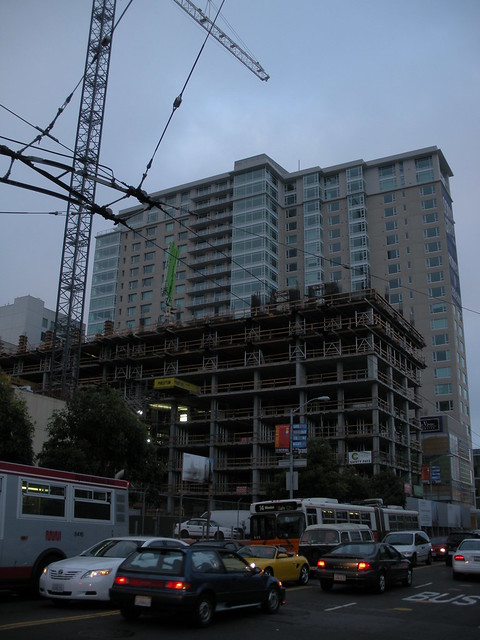City supervisors have reached a compromise on a contentious measure in the zoning plan for the western South of Market District that would have diverted some developer impact fees away from transit and street improvements to fund affordable housing.
By increasing the number of subsidized affordable apartments that residential building developers will be required to provide in large projects, an amendment introduced by Supervisor Jane Kim removed the 33 percent cut in developer impact fees for transportation upgrades originally proposed in the West SoMa Plan, while also satisfying residents' calls to increase the amount of affordable housing for low-income residents in the area. The plan was passed unanimously by the Land Use and Economic Development Committee yesterday, and the full Board of Supervisors is expected to consider it in the coming weeks.
Kim, who introduced the amendment that settled the housing/transit tussle, said the solution makes more sense now than it did during the plan's eight-year development, when the real estate economy was in worse shape. At the time, planning participants thought that imposing more costly housing requirements would dissuade developers from building new housing at all. But with today's development boom, those requirements are expected to be more palatable. "After doing some number crunching" with community members and housing advocates, she said, "we were able to get some consensus."
Under the original West SoMa Plan, for residential projects larger than half an acre where developers who opted to build above the standard building height, one-third of the developers' impact fees (as much as $6 million area-wide) normally devoted to transportation, open space, and child care services would have instead gone to the city's affordable housing fund. The Supervisors Land Use Commitee passed an amendment last week introduced by Supervisor Scott Wiener which tentatively removed that provision, despite strong opposition from community members who chose to make affordable housing a higher priority.
Of the dozens of speakers at yesterday's hearing, nearly all called on the committee to retain provisions to increase affordable housing in the area. While Wiener emphasized the need to expand affordable housing, he stood by his move to ensure that it didn't come at the expense of transit. Responding to a speaker's claim that transportation needs are less urgent to address than the housing crunch, Wiener said, "To be very clear: transportation is not fine in San Francisco, and the people who are most likely to be hurt by our problem transportation system are low-income and working class people."
Noting that residential developer impact fees also go toward pedestrian safety upgrades, he said, "We all know that SoMa is one of the worst neighborhoods in the city for pedestrians ... it is critical that we resolve that."





